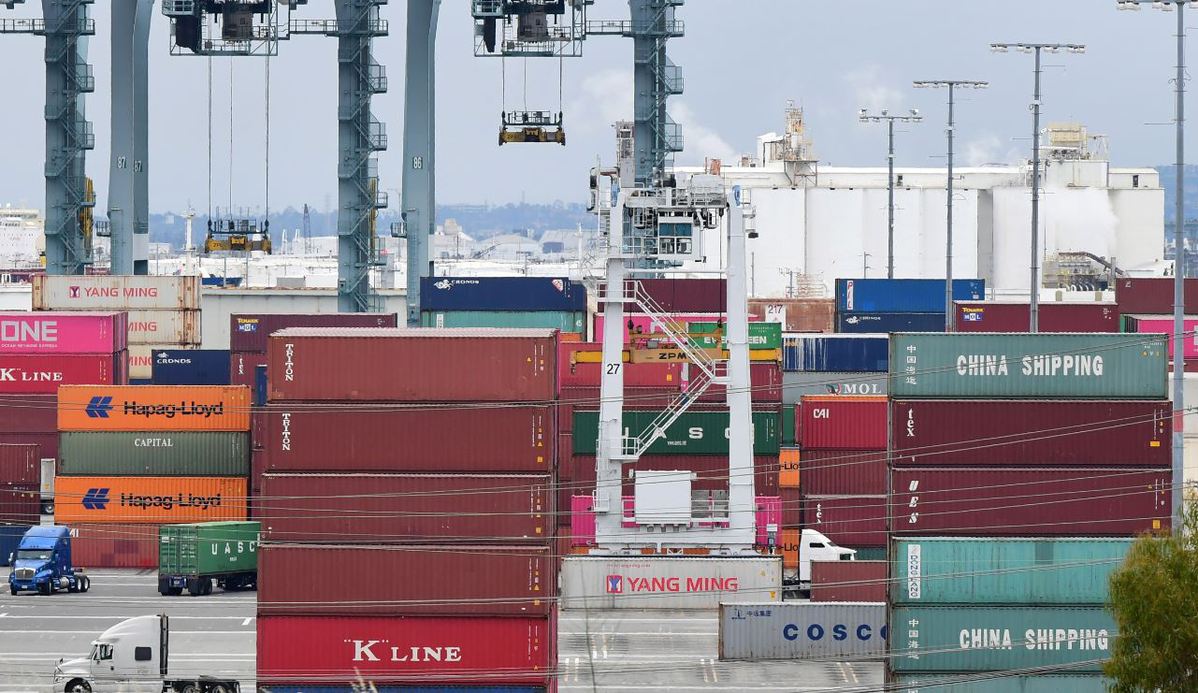Several issues that need to be further clarified about Sino-US trade frictions


? Is technological hegemony by the US a right step?
Science and technology are the crystallization of human civilization and the commonwealth of human society. However, some Americans prefer to pursue a technological monopoly. To maintain its hegemonic position in the economic and technological fields, the US government has long imposed high-tech export controls on China.
During the trade friction, the US government has abused its state power to block Chinese tech companies on the grounds of national security, suppress the development of China's high-tech industries and squeeze China's high-tech products market. This attempt at technological hegemony will in no way succeed.
Science and technology are primary productive forces. The scientific and technological strength largely determines the economic strength and international competitiveness of a country, the changes in the balance of political and economic power in the world and the future and destiny of all nations. As science and technology play such an important role, the hegemonic thinking, monopoly practices and double standards of some people in the US have been vividly demonstrated in the field.
? Will the maximum pressure imposed on China take effect?
Using maximum pressure to achieve its goals is a trick frequently used by some in the United States for international negotiations called "the art of trading". Its main feature is using the means of multifaceted attacks and unlimited requirements while at the same time gaming against its opponent in multiple issues that cross different fields, and then resorting to selected compromising moves to achieve the goals of core interests, to maintain hegemony through power, and to defeat the opponent through bullying and deception. Some people in the US think that "maximum pressure" is extremely powerful, and decidedly useful when dealing with China.
Is the "maximum pressure" measure really effective? In dealing with some small and weak countries, the US government has arbitrarily waved the big stick of sanctions and relied on its power and maximum pressure to impose its own interests. Some countries, shadowed by the powerful economic and political pressure from the US, either because of a lack of overall strength or because of long-term dependence on the US, have been forced by the US to make compromises in accordance with the requirements of the US in negotiations, and they have to quiet down and let the US get what it wants. This is a situation that happens often and inevitably leads some people in the US to form the opinion that all countries, including China, will be afraid of the maximum pressure strategy and will certainly yield and surrender under their powerful pressure.
? Can trade protection make the "return of the manufacturing industry" to the US possible?
Since the Trump administration came to power, it has put forward the proposal of "buying US goods and hiring US workers", emphasizing the "return of the manufacturing industry". Some people in the US offered preferential policies to enterprises that came back to the US to set up factories. For those enterprises that moved their factories abroad, they were threatened with tariffs, forcing enterprises to return to the US for production. Can these trade protectionist practices really enable the US to achieve a return of the manufacturing industry?
Whether the return of the manufacturing industry can be achieved depends first on the reasons behind the outflow of manufacturing from the US.
From the perspective of the US domestic economy, its manufacturing outflow is determined by how the local economy works. In the process of economic globalization, US multinational companies have transferred more and more industries to developing countries to achieve maximum profitability. Through industrial transfer, they reduce costs, expand markets, divert pollution, and increase the profitability of capital. At the same time, more and more capital has left the real economic sector with lower profit margins, and turned to the financial sector to engage in financial speculation, leading to the hollowing out and virtualization of the US economy.
? Can economic and trade friction promote US economic prosperity?
Since 2019, the employment rate and the market value of the US stock market have remained high. In the first quarter, the actual GDP annualized quarter-on-quarter preliminary value was 3.2 percent. Since the introduction of economic and trade friction by the US against China, the US economy seems to be doing well. This has made some people in the US confident about constantly escalating trade friction with China. But to objectively evaluate the so-called prosperity of the US economy requires a comprehensive and rational analysis.
Based on some indicators, the US economy is prospering. However, whether it will continue to prosper depends on the state of capital accumulation. In the first quarter of 2019, the seasonally adjusted fixed-capital investment growth rate of the US private sector was only 1 percent, significantly lower than growth rates in 2017 and 2018. According to US official data, US durable goods orders fell 2.1 percent from the previous month in April 2019, surpassing the expected 2 percent decline. Shipments of core capital goods - a leading indicator of economic expansion - fell by 0.9 percent in April. From the perspective of development trends, economists are unsure about the prospects of the US economy. According to a recent survey released by the National Association for Business Economics, many economists predicted that the possibility of a recession in the US economy by the end of 2020 will almost double, mainly due to the US government's trade protectionist policies.




































